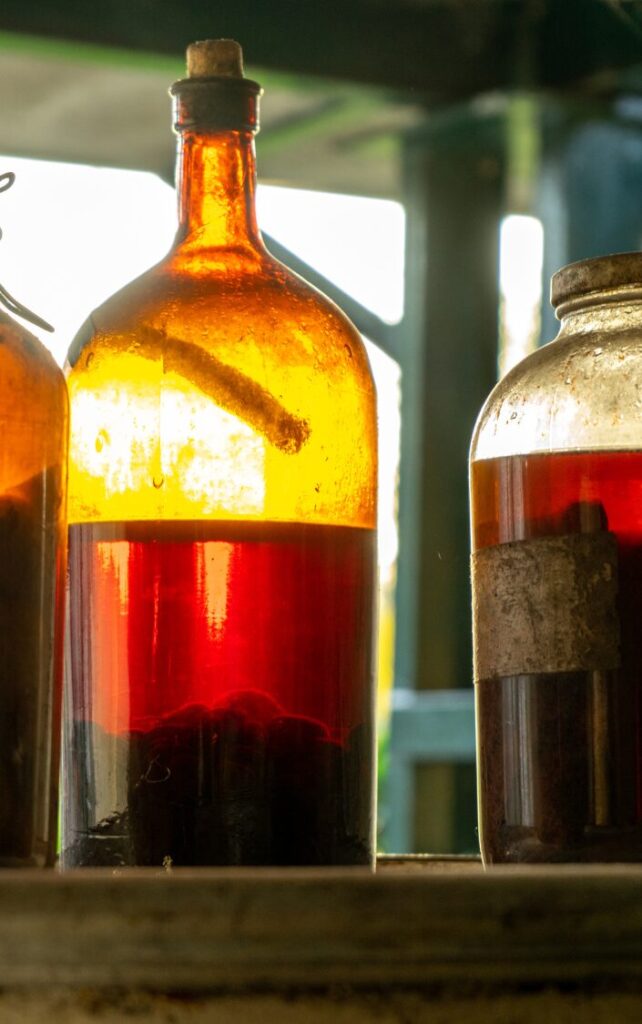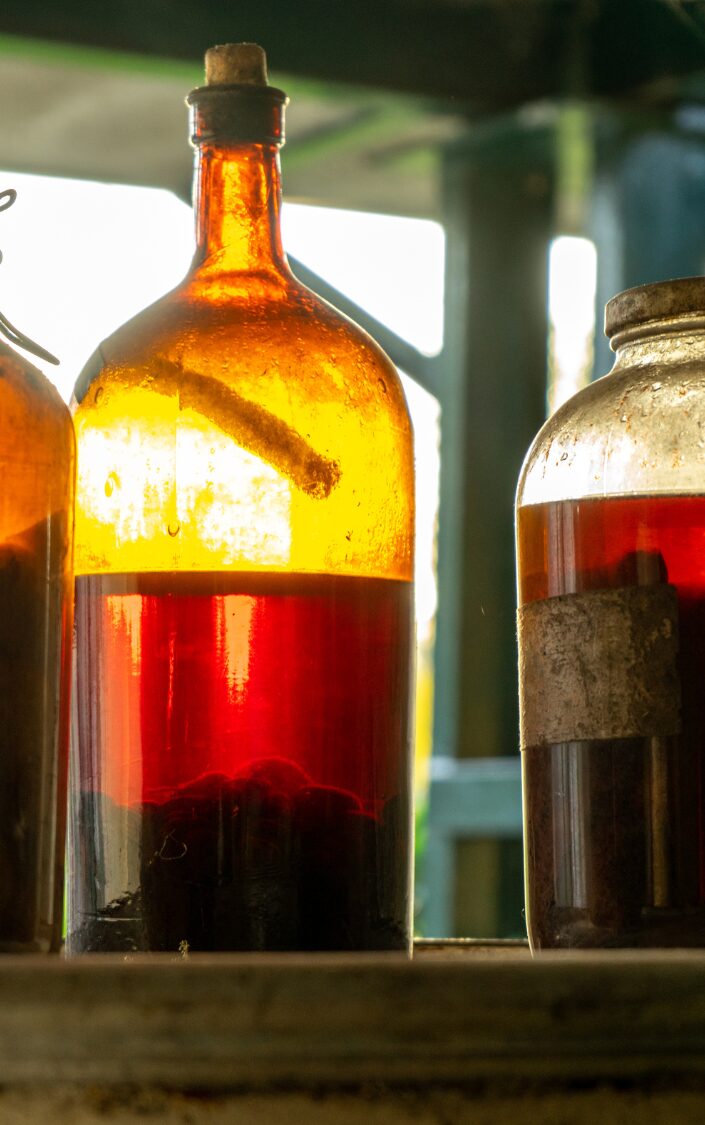
Explore Maceration
Maceration is a fascinating brewing method that allows you to extract the active compounds from herbs using a solvent, such as oil or cream. This method is often used to create medicinal tinctures, cosmetics, and other products that harness the potent properties of herbs. Here’s what you need to know:
What is maceration?
Maceration is a process where herbs are steeped in a solvent, such as oil or cream, to extract their active compounds. This method allows for the slow and gentle release of these compounds into the solvent, creating a concentrated and potent solution.
Types of solvents used:
- Oils: Plant-based oils like coconut oil, olive oil, or jojoba oil are commonly used as solvents in maceration.
- Creams: Creams made from natural ingredients like shea butter, cocoa butter, or coconut cream can also be used for maceration.
- Wines and spirits: Some herbalists use wine or spirits as solvents to create medicinal tinctures.
Benefits of maceration:
- Concentration of active compounds: Maceration allows for the concentration of active compounds from herbs, making them more potent and effective in medicinal applications.
- Long shelf life: Macerated products can have a longer shelf life due to the solvents used, which help preserve the herbal extracts.
- Unique flavor profiles: The solvent can influence the final flavor profile of the product, adding depth and complexity.
Tips for maceration:
- Choose the right herb-to-solvent ratio: Experiment with different ratios to find the optimal balance for your specific herbs and solvents.
- Monitor temperature and time: Temperature and time can affect the rate of extraction, so monitor these factors to ensure efficient maceration.
- Strain carefully: Use a fine-mesh strainer or cheesecloth to separate the solids from the liquid.
Common issues with maceration:
- Herb loss: If not enough solvent is used or if the herbs are not chosen wisely, some of the herb’s active compounds might be lost during the process.
- Unstable flavor profiles: Some solvents can impart unpleasant flavors to the final product, so it’s essential to choose solvents that complement the herbs.
Variations on maceration:
- Cold maceration: Use cold temperatures and short infusion times to extract delicate herbs or create herbal tonics.
- Enfleurage: A French method of maceration where herbs are placed on a fat surface, allowing for the transfer of active compounds into the fat.
- Herbal infusions: Combine maceration with other brewing methods, like distillation or solvent extraction, to create unique herbal products.
Medicinal tinctures and cosmetics that use maceration:
- Digestive tonics: Macerated herbs in oil or cream can be used to create digestive tonics for soothing the stomach and improving digestion.
- Topical creams: Herbal creams made with macerated herbs and oils can be used to soothe skin irritations, wounds, or dryness.
- Essential oil blends: Maceration can be used to extract essential oils from herbs, which are then blended for aromatherapy applications.
Herbs that work well with maceration:
- Calendula: This herb’s anti-inflammatory and antimicrobial properties make it an excellent choice for skin care products.
- Echinacea: Macerated echinacea roots can be used to create immune-boosting herbal teas or tinctures.
- Ginger: Ginger’s warming properties and anti-inflammatory compounds make it a popular herb for maceration-based medicinal tinctures.
By experimenting with maceration, you can unlock the full potential of herbs and create potent, natural products that harness their medicinal and cosmetic properties!

